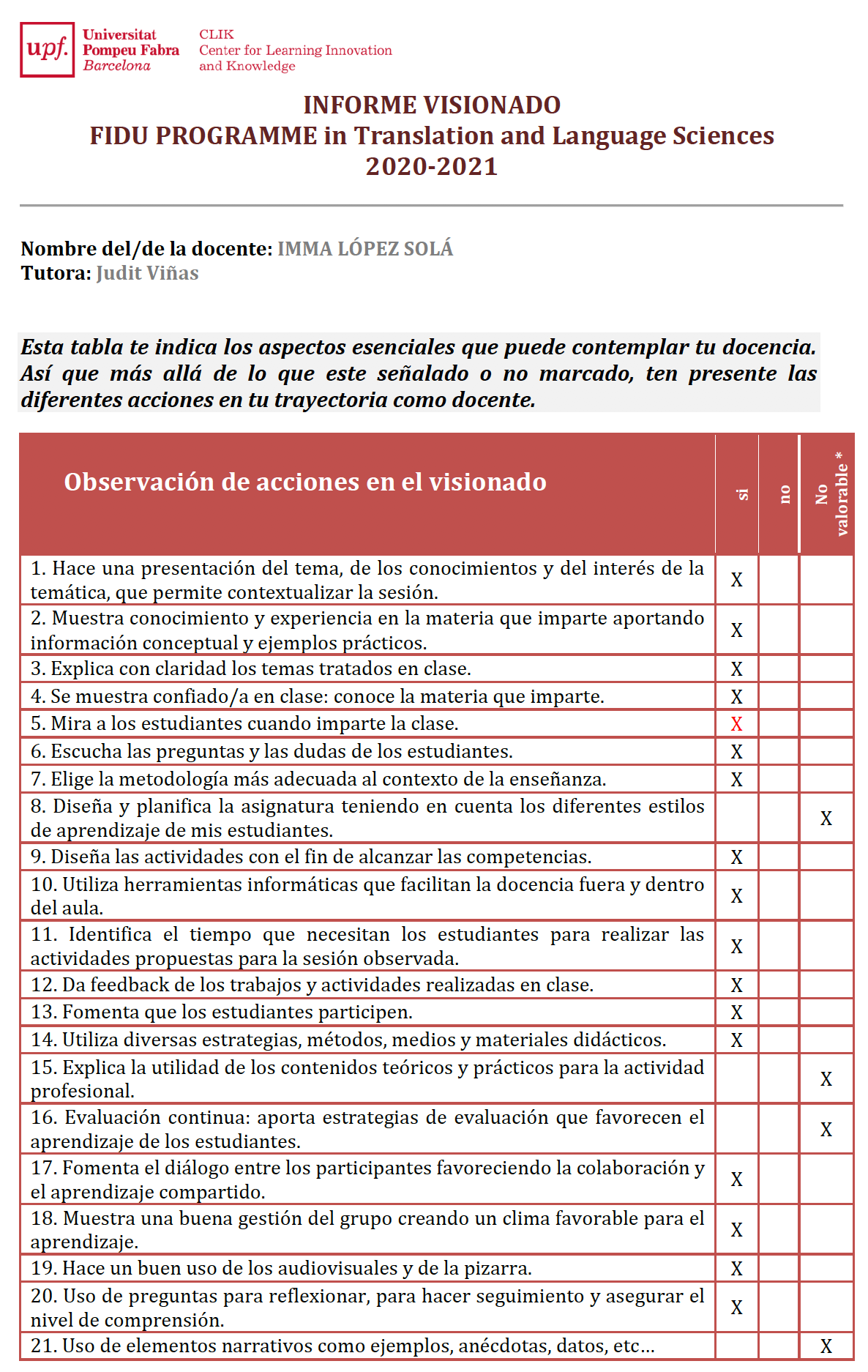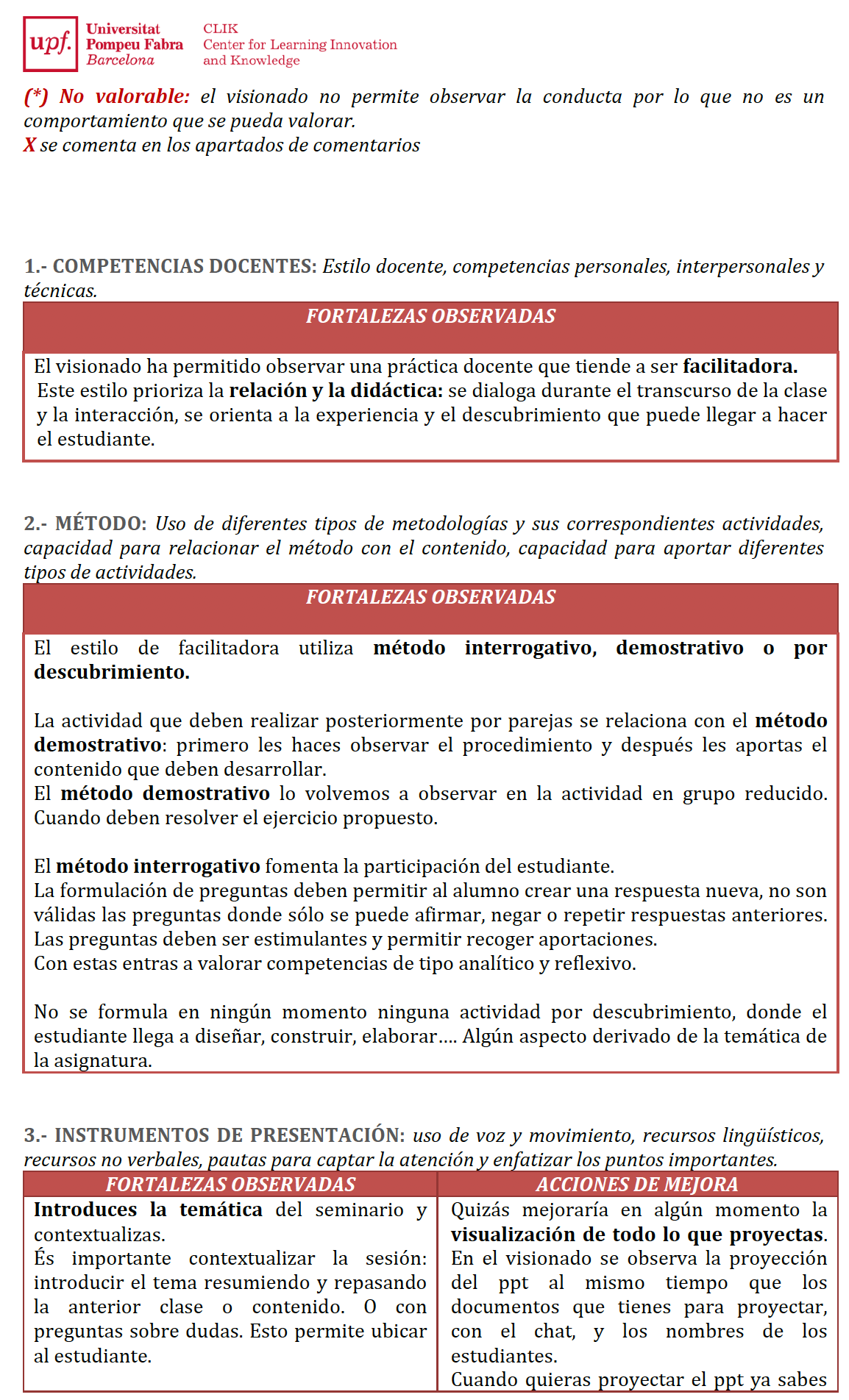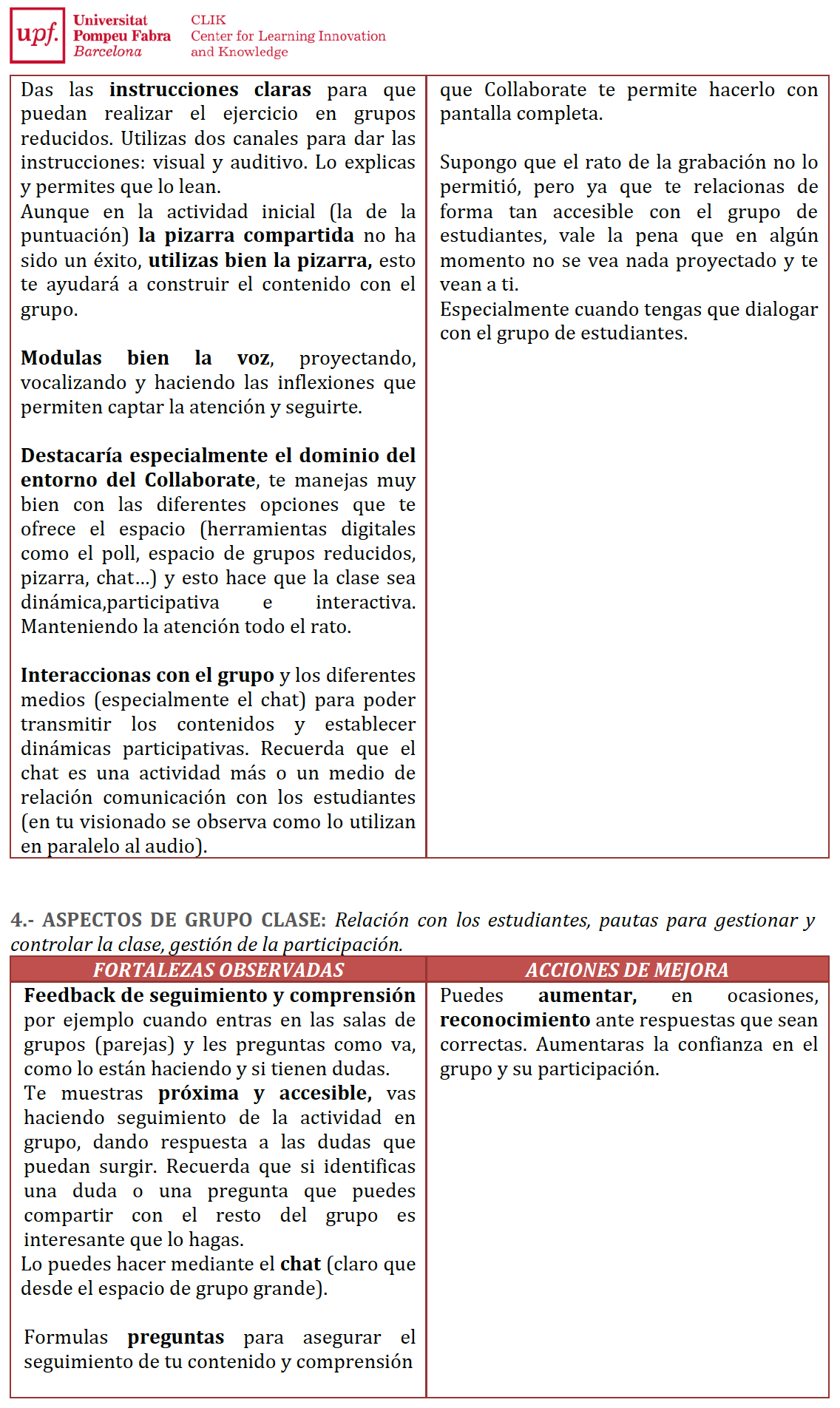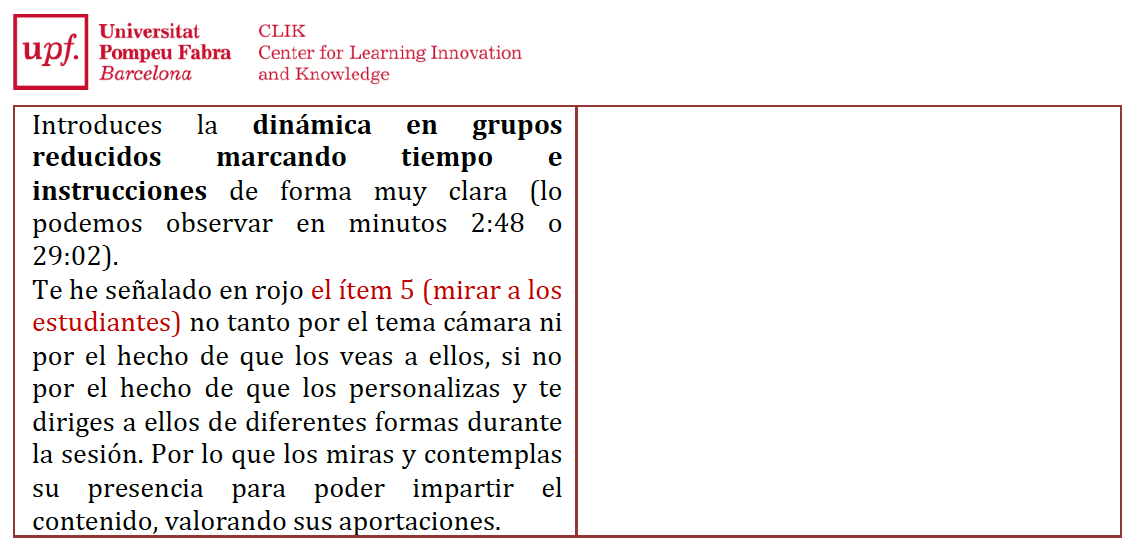As I mentioned in the first document of this learning portfolio, one of the evaluable activities of the FIDU course consists in recording a class of ours so as to receive feedback from an expert — in this case, Judit Viñas, an educational psychology researcher — on aspects of our teaching that could be improved, as well as others that we should keep reinforcing. Therefore, today’s post is devoted to reviewing and reflecting on the tutor’s report and to outlining specific strategies to put into practice in the classroom accordingly.
In order to provide the reader with some context, the lesson I chose to record was from the Spanish Language (25285) subject for first year Translation and Interpreting students. In that particular instance, the goal was to introduce and get the pupils to start working on an assignment on semantic neology that they had to perform with a partner. More precisely, they were expected to adopt the role of a lexicographer and trace in the CORPES XXI, a corpus of current Spanish, neological uses of a series of proposed words, with the aim of systematising the most relevant ones and writing their corresponding definitions for possible inclusion in the dictionary. Before that, we also did a punctuation exercise.
The viewing report
In the following, I attach and comment on the tutor’s viewing report:

I am quite happy with the evaluation grid, as it shows that no facet has been rated negatively. There are, however, some actions that could not be assessed at all due to the recording’s time limit, namely, whether the class and overall course were planned taking into account different learning styles; whether the usefulness of the theoretical and practical contents of the lesson were explicitly connected to industry activities; whether formative assessment was being carried out; and, lastly, whether I employed anecdotes or any other narrative elements that helped retain the pupils’ attention. I can say that the first three things I usually do, whereas as an introverted person I find it very difficult to share personal information — even if it is made up on the spot — with the students, although I do add a great deal of jokes and curious data to my speech to make it more engaging.

Regarding the skills displayed and the teaching methods used throughout the lesson, the tutor only comments on strengths. In the end, nevertheless, she maintains that no activity has been formulated in which the students have to build or create something, which is simply not true: the main objective of the assignment is precisely to detect neological uses of words and to write the definitions of such usages with a lexicographic style, so that they can be included in the dictionary.
Moving on to presentation tools, my mentor does not seem to have realised that I have not recorded the session directly from Collaborate, as she tells me that I should share the didactic materials in full screen. In reality, this is exactly what I did, but I recorded my entire screen — which is not what the students were seeing on their own screens — so that (i) breakout rooms would be filmed as well (since Collaborate’s built-in recording tool cannot capture them) and (ii) she could fully see how I manage with the ICT resources I employ. A very accurate remark that she makes, however, is the fact that at no point do I stop sharing the presentation and therefore my face never occupies the entire space of the video call, which may make students perceive me in a somewhat distant manner.


As for class group aspects, the tutor points out that I could give students more validation when they get the correct answer, which I think is solid advice. To be fair, I am a pretty laconic person and quite often it does not occur to me to speak if I have no new information to add — still, recognition is a great tool to foster the pupils’ self-esteem and thus to foster a nice learning environment as well. As a consequence, I have started to be more verbal about my approval in the classroom.
Once again — and to conclude with this performance review — I am frankly surprised at how positive this feedback was, especially in terms of how interactive the class was perceived to be. This is a huge achievement for me, since classroom dynamics used to be a recurrent problem in my teaching practice in the past; and this being an online lesson on top of it all really boosts my confidence! At a second glance, however, I reckon that something I could improve that has not been brought up by Judit Viñas is my fluency when I speak. While (fortunately) it is not nerve-wracking, I notice that more often than not I need to pause to find the appropriate word, and I would like for it to come more naturally. Maybe I could write a script beforehand of the exact things I want to say and rehearse it a bit prior to the lesson. In any case, I believe this was the most useful activity in the FIDU course and I am eternally grateful for having this service free of charge :-)
Best,
Imma
